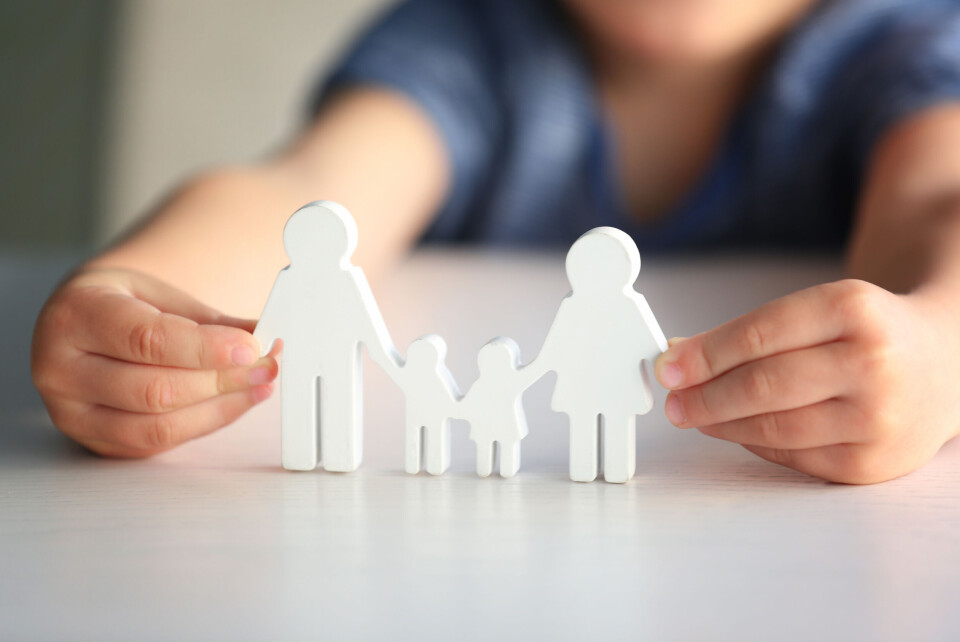-
Explosion at chemical plant near Lyon: where are other ‘at risk’ sites in France?
An estimated 2.5 million people live within a kilometre of a French Seveso site
-
Farmer blockades to continue on motorways over Christmas in south-west France
Protests are being maintained on the A64, A83 and A63 and on departmental roads
-
Interview: UK-France relations will only get stronger this year says new British Ambassador
The Connexion speaks to Sir Thomas Drew, who took up the role on September 1
Unmarried couples to be able to adopt if new French law passes
‘Marriage is no guarantee of stability compared to other types of unions,’ said MP behind the bill

The French Parliament is expected to vote through a law today (February 8) that will open up adoption to unmarried couples.
The Assemblée nationale is set to definitively approve the bill, which was originally put forward by MP Monique Limon of the ruling LREM party in mid-2020.
The law is considered to be part of a key set of “social markers” being put in place as President Emmanuel Macron’s five-year presidential term draws to a close ahead of the presidential elections this April.
Dubbed “a bill of progress” by proponents, the law is also set to reduce the minimum age required for adoptive parents from 28 to 26.
Unmarried couples
One of the standout parts of the bill includes the opening up of adoption to unmarried couples, including cohabiting and pacsed couples.
Read more:‘It took five trips to mairie’: What is getting a Pacs in France like?
Read more:What French term do you call your partner if not married?
This will address “discrimination towards different kinds of unions and adoption by gay couples”, said MP Coralie Dubost (LREM).
Ms Limon said that “marriage is no guarantee of stability” compared to other types of unions.
Currently, only married couples, whether heterosexual or homosexual, can adopt, and they must be at least 28 years old or show they have been together for two years.
Under current rules, an individual aged at least 28 can adopt, but if they are in an unmarried couple only one partner can become the child’s legal parent.
This would change with the new law, which would also lower the age for adoption to 26, or require a couple to show they have been together for one year rather than two.
Anyone wanting to adopt children in care has to apply first for an agrément (accreditation) from the Aide Sociale à l’Enfance (ASE) service in their department.
This involves a series of interviews to make sure candidates are suitable. In 2018, 10,676 families were awarded an agrément, exceeding the number of adoptable children.
Read more: Family groups in France concerned over adoption law changes
‘Giving a family to a child’
The bill has not always seen agreement within the French Parliament, with some centre-right senators warning that adoption should always be about “giving a family to a child, and not the other way around”.
Some LR (Les Républicains, centre-right) MPs disagreed with Ms Limon’s statement on marriage, saying that “marriage is still the most protective context” for adoption.
Even so, Minister for Children Adrien Taquet has said that the measures will "firmly and definitively anchor adoption in the protection of children, and in a modern approach that is concerned with the well-being of all members of our society”.
State and international adoption rules
The bill will prohibit adoption groups les Organismes autorisés pour l'adoption (OAA) from taking in children within France to find them families. Instead their role will be limited to helping people in France adopt children abroad. In another measure, adoptions abroad will have to involve an OAA or the Agence française de l’adoption as intermediaries and members of the public will not be able to adopt abroad otherwise.
Ms Limon said: “We want [departmental service] l’Aide sociale à l'enfance to take in children [instead], so that they can benefit from the official status of ward of the state (pupille de l’Etat), which is much more protective.”
The law is also set to require biological parents who give up their children to social services, because they cannot cope, to allow them to become a ward of the state and to be put up for adoption. Some associations and MPs have criticised the fact that this will remove a previous right for biological parents to have to explicitly consent to their children being adopted by someone else.
Another measure concerns situations where, in female couples, one person has been abroad to have a child by surrogacy. Under the new law, if the women separate afterwards the woman who did not have the child will be allowed to adopt him or her even if the other partner is opposed to this.
The bill is also intended to improve the workings of conseils de famille, bodies within each geographical department responsible for children who are wards of the state. A discrimination expert is now set to be appointed for each.
In another change, these bodies will now only include one, rather than two, members selected for their medical, psychological or social work expertise, as opposed to two child protection experts. Adoption group l’Association enfance et familles d'adoption (EFA) has said it is worried that there will therefore now be only one person responsible for the medical, psychological and social development of the child.
Currently, in France, more than 10,000 adoption agrément procedures are ongoing. Even so, there are always far more requests for adoption than successful placements.
In 2019, just 706 children under state care were adopted (out of 2,348), plus 421 children that were adopted from abroad.
























